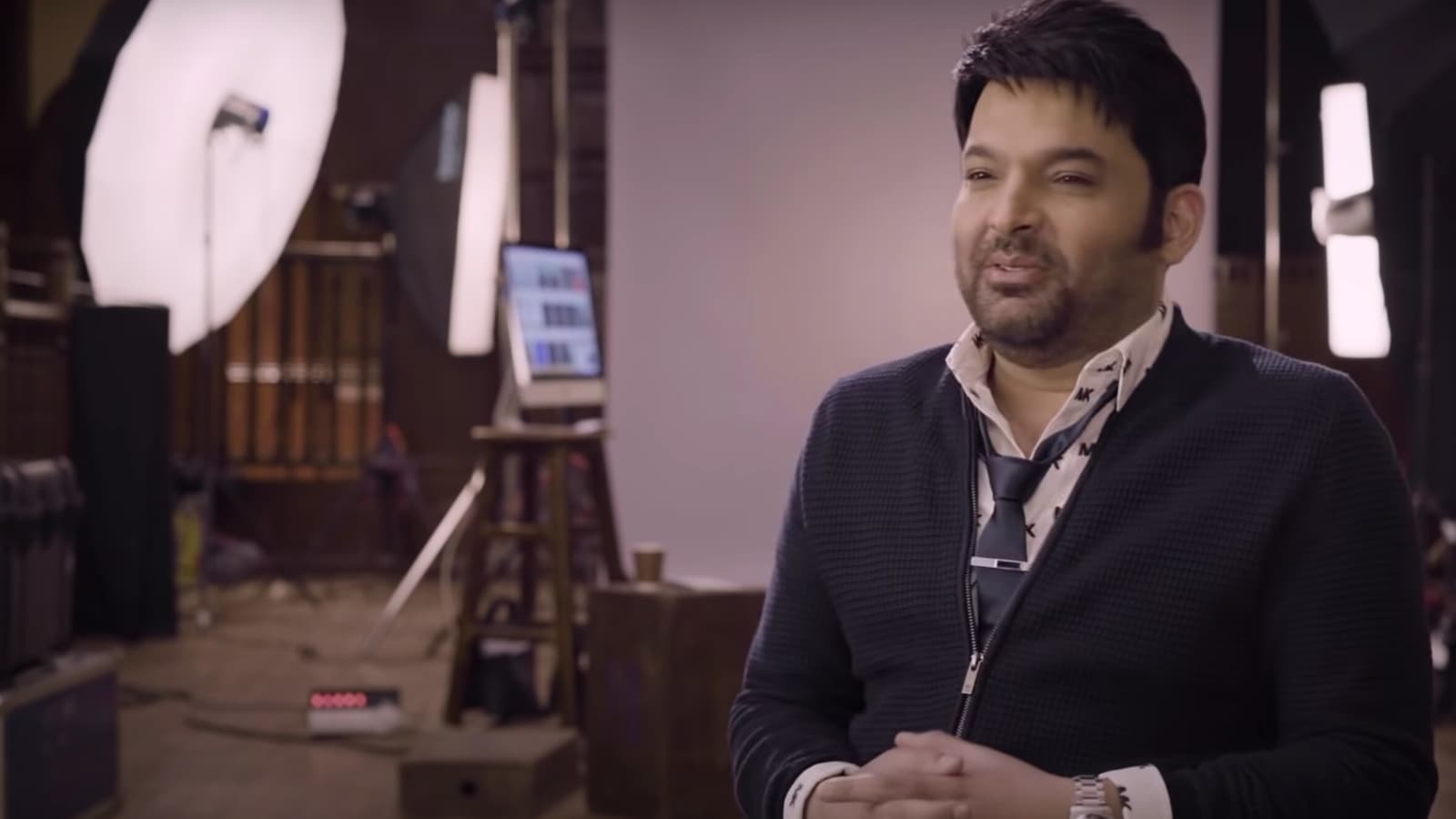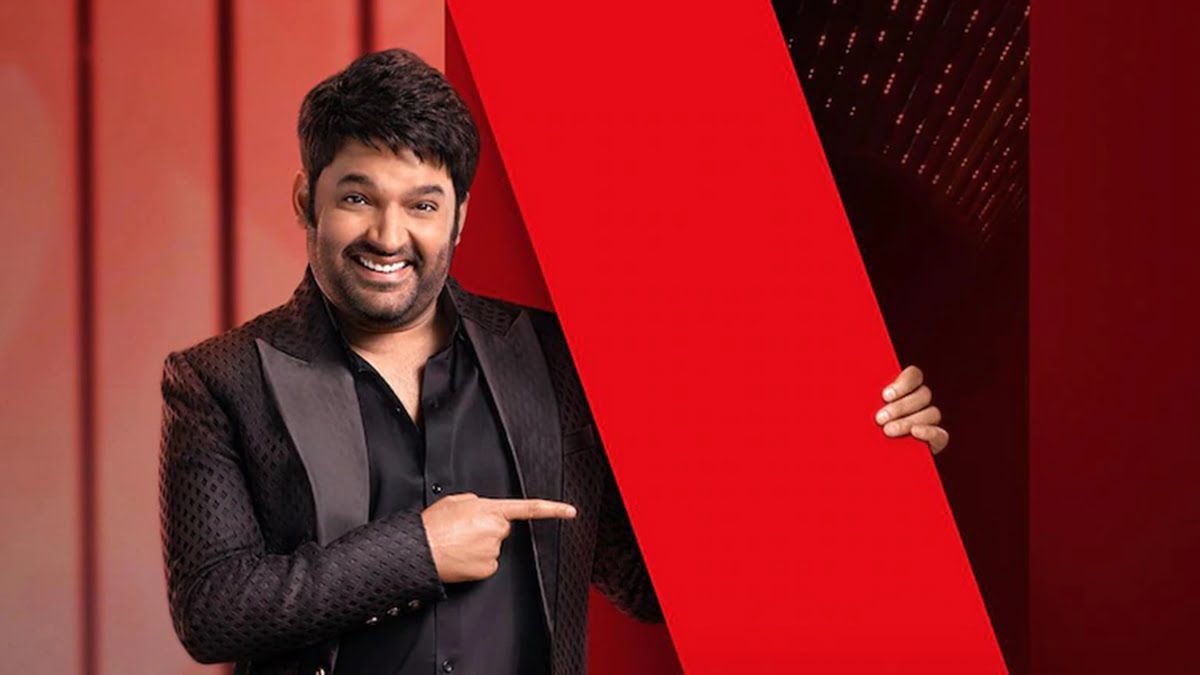Recently, the popular comedian and TV show host Kapil Sharma made his Netflix debut with a special standup titled ‘Kapil Sharma: I’m Not Done Yet’. This release was seen as a necessary break from the comic specials released by the South-Delhi and Mumbai stand-up comedians on various OTT platforms such as Amazon Prime and Netflix, often packaged in a way to cater to a elite section of the audience. Kapil Sharma’s mediocre comedy, in such times, come as a source of benign amusement in most Indian households that uses bog-standard sexist humor — a traditional form of comedy savored by middle age Indian men.
What adds to the viewer’s experience is that the popular ‘Kapil Sharma Show’ streaming on Sony TV, not only offers familiar tropes of misogyny but is choreographed in a way that brings back the nostalgia of the early 21st century Indian shows like ‘The Great Indian Laughter Challenge’ and ‘Movers and Shakers’ among many others.
What adds to the viewer’s experience is that the popular ‘Kapil Sharma Show’ streaming on Sony TV, not only offers familiar tropes of misogyny but is choreographed in a way that brings back the nostalgia of the early 21st century Indian shows like ‘The Great Indian Laughter Challenge’ and ‘Movers and Shakers’ among many others. Kapil Sharma’s comedy show is a present day revival of staged and acting comedy that middle-aged adults ache for in the digital era of standups.
Also read: Review: Daniel Sloss And His Responsible Comedy
Kapil Sharma’s show, without which no Bollywood film promotion is complete, is a re-modelling of the deplorable ‘husband-wife’ and ‘veg and non-veg’ jokes floating around WhatsApp groups and joke portals. This innocuous joke category cherished by Indian men is orchestrated live, in addition to the caricaturist representation of women on the comedy show. The show thrives on ridiculing women as being promiscuous and mocking them as having no intellect to make sense of the ‘obvious’. Not only this, taking the tone of ‘self-deprecating’ humor directed at the actress Archana Puran Singh who appears as special guest on the show, Sharma’s comedy veils the transphobic and sexist pretensions that serve the humor of a virile audience. His buffoonery that has a ‘massy’ appeal is a big screen replica of bigoted prejudices and laughter that finds place in the blabbering of drunk men.
The participation of top Bollywood celebrities not only signifies their endorsement of such lazy comedy and writing, which Bollywood itself incorporates but also indicates Kapil Sharma’s influence in the industry. For a man who has literally ‘designed his own destiny’, we understand that more than Sharma needing a Netflix special, it is Netflix that needs a ‘Sharma’ who would be readily welcomed into more homes and devices. The mammoth brand name of his show, popular among middle aged audiences, gives Netflix the edge to widen its audience range that goes beyond the millennials and GenZs.

However, when one looks at Kapil Sharma’s Netflix special, we see it is more intimate, one wherein he pays homage to his wife and others. The comedian talks about his alcohol addiction and depression, allowing him to overstep the prohibitive nature of television. He reaffirms themes that he consistently chooses to talk about, such as family, love, aspirations and his small town hardships. There is no woman-bashing in this one, probably because the only woman Sharma talks about is his wife. The piece doesn’t have a looped structure unlike his show except that Sharma consistently reminisces about his late father throughout the standup special. The comedian grips his performance around self-deprecating humor-one that comes quite naturally to him.
When one looks at Kapil Sharma’s Netflix special, we see it is more intimate, one wherein he pays homage to his wife and others. The comedian talks about his alcohol addiction and depression, allowing him to overstep the prohibitive nature of television. He reaffirms themes that he consistently chooses to talk about, such as family, love, aspirations and his small town hardships. There is no woman-bashing in this one, probably because the only woman Sharma talks about is his wife.
Amidst the contemporary comic industry which comprises political satire, observational comedy, quirky sketches, gig and open mics, Kapil Sharma’s Netflix special seems like an upswing in which the comedian comes close to some artistry and ‘wokeness’. Perhaps, it is time that the comedian abandons his lazy comedy and embodies creativity, originality and criticality in his content. One is now likely to enjoy humor that witfully takes a dig at the sexism and misogyny that manifests in domestic and public places.
Also read: Zakir Khan’s Haq Se Single And The Underlying Glamourisation Of Bro Culture In Comedy
We expect humor that counters and mocks such tendencies rather than reiterating them. It is about time that we witness an evolved humor that punches down on the chauvinism that women are compelled to experience in the society. We want a humor that mimics rather than one that reinforces prejudices. A humor that charges people, especially men with culpability on the content they consume and leaves a scope for reflection. All this can be achieved at no expense of losing the precise audience that Kapil Sharma caters to, only this time ridiculing and scoffing off at situations that genuinely stirs up laughter.
Featured image source: India Today
About the author(s)
Mansi Bhalerao is an Ambedkarite feminist, an undergraduate at Miranda House. She is an aspiring student of Sociology, trying to navigate and assert her praxis.




